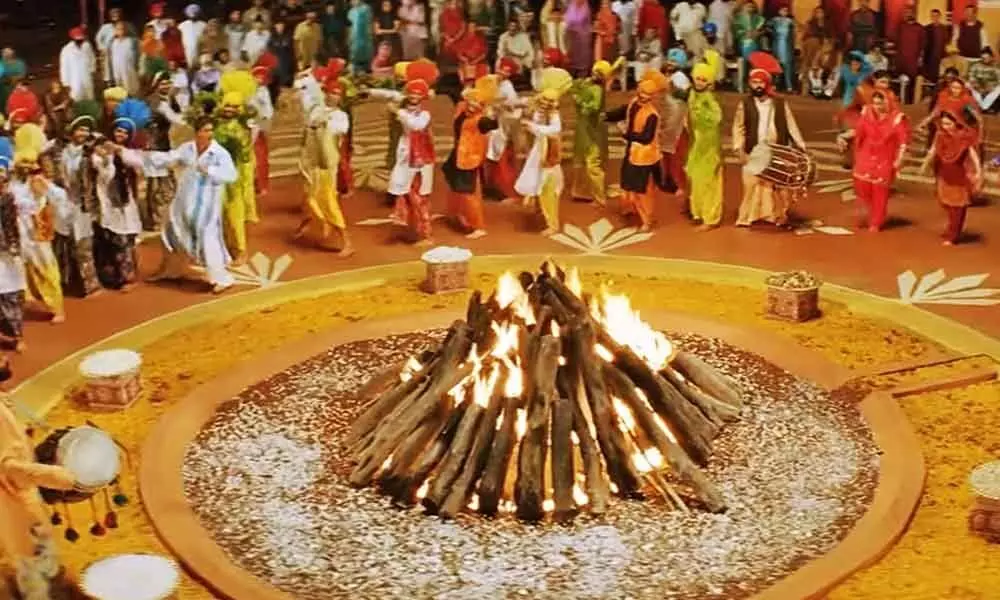Live
- MyVoice: Views of our readers 23rd November 2024
- Civic chief expresses ire over poor sanitation
- Deep State behind Adani crisis?
- Collector inspects GGH; asks staff to provide better medicare to poor
- Zero Case: A Saga of Eradication of Polio in India
- Cancel PPAs with Adani companies, demands CPI
- Nuclear saber rattling in Russia-Ukraine war
- AKNU V-C attends GEO India-2024 conference
- SSSG student selected for national painting contest
- Focus on studies, avoid societal vices: SP Krishnakanth
Just In
Makara Sankranti The 3 Day Harvest Festival of Telugu states begins


Makara Sankranti is celebrated on the First month14th of January every year. Which is celebrated almost all over India.
Makara Sankranti is celebrated on the First month14th of January every year. Which is celebrated almost all over India. Sankranthi marks the transition of the sun in the zodiacal sign of the Makara (i.e Capricorn ) on its celestial path. The word 'Sankranti' literally means 'movement'. Hence, the festival precisely denotes the movement of the Sun into Makar zodiac.
On the day of Makar Sankranti festival, the duration of the day and that of the night is equal making it one of the oldest solstice festivals. The festival officially marks the onset of spring or Indian summer. Post this day, the Sun stays in for a little longer as compared to the previous days making days longer than nights.
Day 1
Tuesday
Chaturthi
Lohri, Maghi
Bhogi Pandigai
Sunrise at 07:15 AM
Sunset at 05:45 PM
Panchang for Lohri Day
Day 2
15th
January 2020
Wednesday
Lord Surya
Panchami
Makara Sankranti, Pongal
Pedda Panduga, Uttarayana
Uruka
Sunrise at 07:15 AM
Sunset at 05:46 PM
Day 3
16th
January 2020
Thursday
Lord Surya
Shashthi
Mattu Pongal, Kanuma Panduga
Magh Bihu
Sunrise at 07:15 AM
Sunset at 05:47 PM
How is Makara Sankranti celebrated in Telangana and Andhra Pradesh
The three-day Sankranti festivities begin in Telangana and Andhra Pradesh for three consequetutive days. People from villages and small towns come alive form their native places as thousands of Telugus come alive from different places.
'Bhogi', the Bonfire night which is the first day of the festival, was celebrated on sunday with traditional fervour.
Bhogi 'mantalu' (bonfire) were lit at dawn outside the homes. The bonfire is lit with logs of wood and wooden furniture that is no longer useful.
Discarded things at home are also thrown into the fire. The disposal of discarded things symbolises the sacrifice of old habits, vices and attachment to material things.
Traditionally, women spray cow dung and water in front of the house and draw colourful rangoli and keep 'gobbemmalu' (cow dung balls) decorated with turmeric, kumkum and flowers on the rangoli.
In the evenings, 'Bhogi pallu' (Indian jujube) are showered on children seeking their health and prosperity.

© 2024 Hyderabad Media House Limited/The Hans India. All rights reserved. Powered by hocalwire.com






